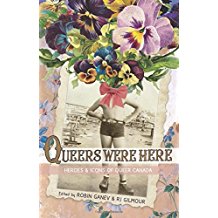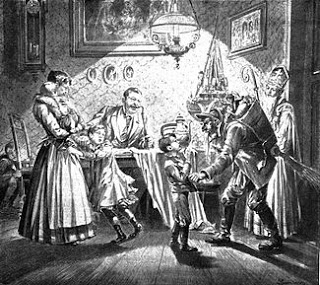by Jean Roberta
For the past few weeks, I’ve been revising, reorganizing, and overhauling an erotic novel I wrote in 1998. What was once contemporary is now historical, or at least nostalgic. None of the characters have cellphones, and they don’t hang out on FaceBook, so they usually communicate face-to-face. When traveling, they are unreachable.
I decided to keep the period flavour, but what I thought of at the time as an omniscient narrative voice now looks like a dizzying road trip through too many heads that are not all in the same place at the same time.
The biggest challenge of the rewrite is the need to focus more consistently on one consciousness throughout most of the plot. I gave myself permission to devote a few chapters to the viewpoints of two important secondary characters, but since the story is really an erotic romance as well as a queer coming-of-age story, it needs to focus on the central character.
Viewpoint is never a side-issue in fiction. For every plot (a series of events based on a process of cause and effect), there seems to be an ideal narrator to tell it, or an ideal pair of eyes through which to view the world in which the story takes place. At the same time, focusing on one consciousness means excluding all others, except by hinting at other characters’ internal reality through action and dialogue.
Viewpoint can be a scary thing. Edgar Allan Poe’s horror stories get much of their effect from the voices of narrators who reveal themselves to be irrational and out of touch with reality. Narcissists, while able to function in the world, do a horrible job of impersonating other people. For example, in one episode of the sit-com The Big Bang Theory, the chief science nerd Sheldon Cooper decides that he needs to learn how to act. He approaches his neighbour Penny, a struggling actor, for help. She tells him to improvise a speech, which he converts into a play about himself as a misunderstood genius. At one point, he pretends to be his actual mother, and says, “I’m just an ignorant Bible-thumping woman from Texas. I can’t understand scientific reality.”
Some of the worst stories I’ve ever read include equally unconvincing confessions, often written by male authors and put into the mouths of female characters. “Exotic” accents and “ethnic” humour can be equally cringe-worthy.
Attempting an “omniscient” voice, I hoped, would at least enable different streams of consciousness to balance and comment on each other. In real life, everyone involved in a situation has a viewpoint, and a truly omniscient (all-knowing) perspective doesn’t exist.
As I delete whole passages of head-hopping, I regret having to “murder my darlings.” Some of those unspoken thoughts can’t be rewritten as dialogue, since there are reasons why the characters didn’t speak them aloud in the first place.
Fiction would be boring if every writer stuck to first-person autobiography. Writing about characters who are very different from oneself is one of the joys of the game, yet we all do it at our own risk.
If John and Mary have a conversation in a story I’m writing, I want the reader to get a sense of both viewpoints. If John is the narrator, is Mary being shrunk to a relatively minor character? If Mary is the narrator, is she fairer to John than he would be to her? Do they need a witness, a cooler and more detached head, to tell their story? In that case, what happens to the passion that keeps a reader involved?
In reality, being able to hear the thoughts of every passer-by would produce cacophony in one’s own head. We would all want to turn off that magical power. As a writer and a reader, I like coherence, and therefore I strive to resist head-hopping. It’s a struggle.
Comments welcome.





